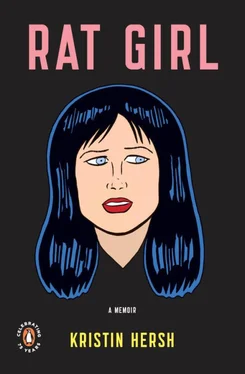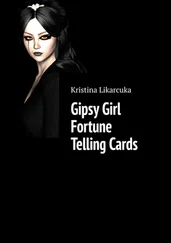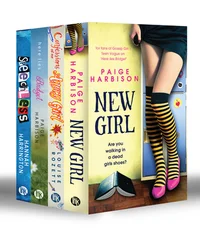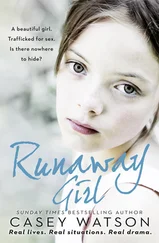They say, “You are ill, so what appears to you is only unreal fantasy.” But that’s not strictly logical. I agree that ghosts only appear to the sick, but that only proves that they are unable to appear except to the sick, not that they don’t exist.
—FYODOR DOSTOYEVSKY
The universe is godding.
—MICKY DOLENZ
This book is based on a diary I started when I was eighteen. Don’t know why I kept the diary for so many years; the combination of nostalgia and nausea I felt when reading it was pretty rough. I sort of held it out at arm’s length, the way you might keep the first fish you ever caught ( it’s an accomplishment… it just stinks!) . I do find it astonishing that, as a teenager, I was already trying to bring music and art together; a hell of a mission to take on. If Americans thought music and art belonged together, they wouldn’t have the Grammys!
I guess the diary was a bad luck charm—I really didn’t want history repeating itself. ’Cause it was certainly a strange book to pick up and read. Full of holes, it dissolved along with the drowning writer and each page was oddly like crawling in a window: you had to stand up carefully, squint, get your bearings. The diary was about a year long, from one spring to the next.
I seemed awfully young that first spring and not so young the next, though this wasn’t a year when a whole lot happened, in my opinion. It was a year when many things began, which is probably important. It was also a year I tried very hard to forget, so I know it was worth remembering. Some of it I don’t actually remember; I just read about it in the diary. I’m real okay with not remembering this stuff, though; like a lot of people’s stories, mine can be pretty embarrassing.
 Songs help with that. They don’t commit to linear time—they whiz around all your memories, collecting them into a goofy pile that somehow seems less goofy because it’s set to music. Songs’re weird: they tell the future and they tell the past, but they can’t seem to tell the difference. So I stuck lyrics from my songs into the text whenever they reflected on a moment and its reverberations.
Songs help with that. They don’t commit to linear time—they whiz around all your memories, collecting them into a goofy pile that somehow seems less goofy because it’s set to music. Songs’re weird: they tell the future and they tell the past, but they can’t seem to tell the difference. So I stuck lyrics from my songs into the text whenever they reflected on a moment and its reverberations.
Here’s a quote of mine: “I would never paint a picture, do a dance or write a book .” And here’s another one: “I’m not in the business of publishing pages from my diary .” I still say these things all the time. What I mean when I say them is that although I’m a musician, I’m not a particularly creative person, nor am I interested in self-expression—I don’t want people to listen to my songs so that they’ll care about me . That would be obnoxious.
I did, however, write this book based on pages from my diary because copying down a year isn’t a particularly creative thing to do. And it all happened twenty-five years ago, so it can’t really count as a story about me —that girl isn’t me anymore. Now it’s just a story.
And interestingly, it turns out to be a love story. One with no romance, only passion. Passion for sound, reptiles, old ladies, guitars, a car, water, weather, friends, colors, chords, children, a band, fish, light and shadow. It’s dedicated to my friends Betty and Mark, who both died while I was turning the story into this book. And can I just say: everything that wacky old Betty Hutton told me was true. The craziest things she said turned out to be particularly true. She was even right about “Throwing Muses” having too many syllables.
Betty taught me that you can’t tell the whole truth, as not all of it is pertinent or lovely. You have to leave things out in order to tell the story . Otherwise, people could miss the whaddyacallit… the point. Her story was full of brightly lit holes that allowed the point to show itself in sharp relief.
For what it’s worth, this is my old diary’s story, riddled with enormous holes and true.
Love, Kristin
The handmade Jesus on Napoleon’s living room wall has no face, just a gasping, caved-in head with blood dripping down its chest. He appears to have been crucified on some popsicle sticks. His mottled green and gold surface reminds us of fish scales and his paddle-shaped toes fan out like a tail. It is a singularly gruesome crucifix. We call it “Fish Jesus.”
The first time I saw it, I thought it was funny. It’s less funny at night when you’re alone. And even less funny tonight because next to me is a bag of horrible donuts one of the painters left for me as a joke. They look just like Fish Jesus. Oblong, greenish-gold and bloody with jelly, coconut maggots swarm over them. I really don’t wanna look at them anymore, but throwing them away would mean touching them and I don’t wanna do that, either.
So me and Fish Jesus and the donuts all lean against the wall, watching Christmas lights blink. It isn’t Christmas, but these were the only working lights left in this empty apartment when its old man died. He was named Napoleon. All we really know about him is that he lived here in Providence and now he’s dead, his body and most of his belongings carted away. And somehow he still pays his electric bill. Someone does, anyway, and it isn’t me or any of the other people I’ve seen use his electricity.
I also know where he hid his key (under the mat—Napoleon was a brilliant tactician), and tonight I need a place to stay. So I park myself under a sad crucifix and watch tiny blue, green, red and orange bulbs blink on and off. Insomniacs like to waste time.
The lights are comfortingly tacky, the garish blue ones my favorites. They remind me of being a little kid, hypnotized and mystified by Christmas. I open first one eye and then the other, to see if I can watch only the blue lights and ignore the other colors, but it’s hard and I’m boring myself, so I close both eyes to try and get some sleep. They pop right open again.
 fish
fish
i have a fish nailed to a cross on my apartment wall
This room is not a good thing to look at, but I look anyway. The wall-to-wall carpeting is a pukey beige, bleached in the center by a stain shaped like a hermit crab. The paneling on the walls is marked by big splotches of something that once sprayed across it. It has been suggested by sleepless crashers that these splotches are a clue as to how Napoleon died. The whole apartment smells like mold and disinfectant. And now, donuts.
It’s spring, but you’d never know it looking out Napoleon’s window. He lived and died in a gray world.
I’m glad it’s spring, though—Christmas decorations around here are the saddest things you ever saw. They hung, decomposing in the gray wind, through March. Just a few weeks ago, someone took down the dismal pink wreath, blackened with car exhaust, that hung around the fluorescent green sign across the street. This sign has always read, will always read: “Pumpkin Muffins 24 Hours.”
All the women who work in the donut shop below the sign look the same. They wear pink smocks and lean on the counter, smoking, all night long. I’m often a sleepless crasher in this apartment myself and I’ve spent many hours watching them to see if they ever move. They don’t. I’ve never even seen one light a new cigarette. It probably smells like mold, disinfectant and donuts in there, too.
Читать дальше


 Songs help with that. They don’t commit to linear time—they whiz around all your memories, collecting them into a goofy pile that somehow seems less goofy because it’s set to music. Songs’re weird: they tell the future and they tell the past, but they can’t seem to tell the difference. So I stuck lyrics from my songs into the text whenever they reflected on a moment and its reverberations.
Songs help with that. They don’t commit to linear time—they whiz around all your memories, collecting them into a goofy pile that somehow seems less goofy because it’s set to music. Songs’re weird: they tell the future and they tell the past, but they can’t seem to tell the difference. So I stuck lyrics from my songs into the text whenever they reflected on a moment and its reverberations.










